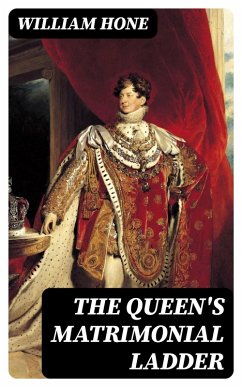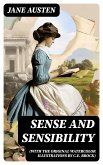William Hone's 'The Queen's Matrimonial Ladder' is a satirical and politically-charged work that critiques the royal marriage practices of his time. Through a series of caricatures and poems, Hone creates a scathing commentary on the social and political climate of early 19th century England. Written in a witty and sarcastic tone, the book showcases Hone's skill as a satirist and his ability to challenge the status quo through humor and clever wordplay. Set against the backdrop of the tumultuous political landscape of the Regency era, 'The Queen's Matrimonial Ladder' offers a unique insight into the power dynamics and scandals of the time. It is a must-read for those interested in political satire and historical commentary. William Hone's sharp wit and keen observations make this book a timeless and engaging read for anyone interested in the intersection of literature and politics.
Dieser Download kann aus rechtlichen Gründen nur mit Rechnungsadresse in A, B, BG, CY, CZ, D, DK, EW, E, FIN, F, GR, H, IRL, I, LT, L, LR, M, NL, PL, P, R, S, SLO, SK ausgeliefert werden.









